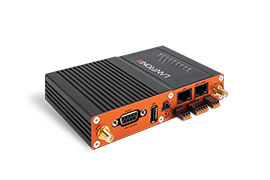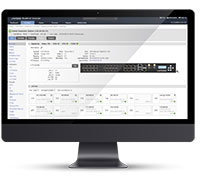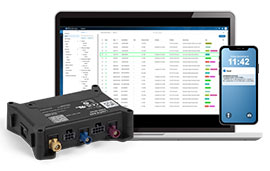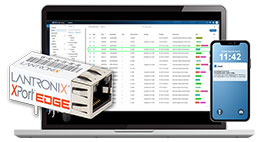Redundant Management: What is a “Primary” Management Module?
It is possible to install several Base Management Modules in a Point System stack. One of these modules, known as the “Primary” Management Module, controls the flow of management data within the Point System. The others are known as “Standby” Management Modules. The Primary Management Module is responsible for soliciting responses from other Point System devices – collecting status and distributing configuration information. The Standby modules listen in on some types of messages sent to the Primary, and are ready to take over the function of the Primary should it stop responding.
The system administrator can read configuration or status information from any of the Base Management Modules, but the Primary is the only one that is able to accept configuration changes, since it is the only one that has the means to distribute the information to the destination device in the stack. Furthermore, Standby Management Modules are unable to track management data collected via Ethernet, so Management Aggregation Converters are not detected by Standby Management Modules. Therefore, it is strongly recommended that you always view the Primary Management Module with your management application.
When multiple Base Management Modules are installed in a Point System stack, they negotiate to determine which will be the Primary. The winner of this negotiation sets its cpsmm100IsPrimary MIB variable to yes(1), and all of the others set theirs to no(2) and stop soliciting responses from other devices.
Every Base Management Module must make a decision as to whether or not it is the Primary module based on the conditions in the stack. The criteria are as follows:
- If the module is ineligible to be the Primary, it drops out of the negotiations and sets its
cpsmm100CanPrimaryMIB variable tono(2). A module is ineligible to be the Primary if it is unable to communicate over the Ethernet, either because link is down or because its IP configuration is invalid. - If the module is not configured by the user (via the
cpsmm100WantPrimaryMIB variable) to “want” to be the Primary and it sees that any other eligible module is, it drops out of the negotiations as above. - The modules that remain “negotiate” by yielding Primary status to any other eligible module that is installed in a cabinet with a lower serial number, or in a lower (further left) slot if the cabinet serial numbers are the same.
| Parameter | Associated MIB variable | Description |
| Primary/Standby State | cpsmm100IsPrimary(11) | Is this Management Module currently the Primary Management Module? (read-only) |
| Primary/Standby Selection | cpsmm100WantPrimary(12) | Has the network administrator selected this Management Module to “want” to be the primary – i.e. to receive preferential treatment during negotiations? (read-write) The following values can be used:
|
| Primary/Standby Ability | cpsmm100CanPrimary(13) | Is this Management Module eligible to become the Primary? (read-only) |











